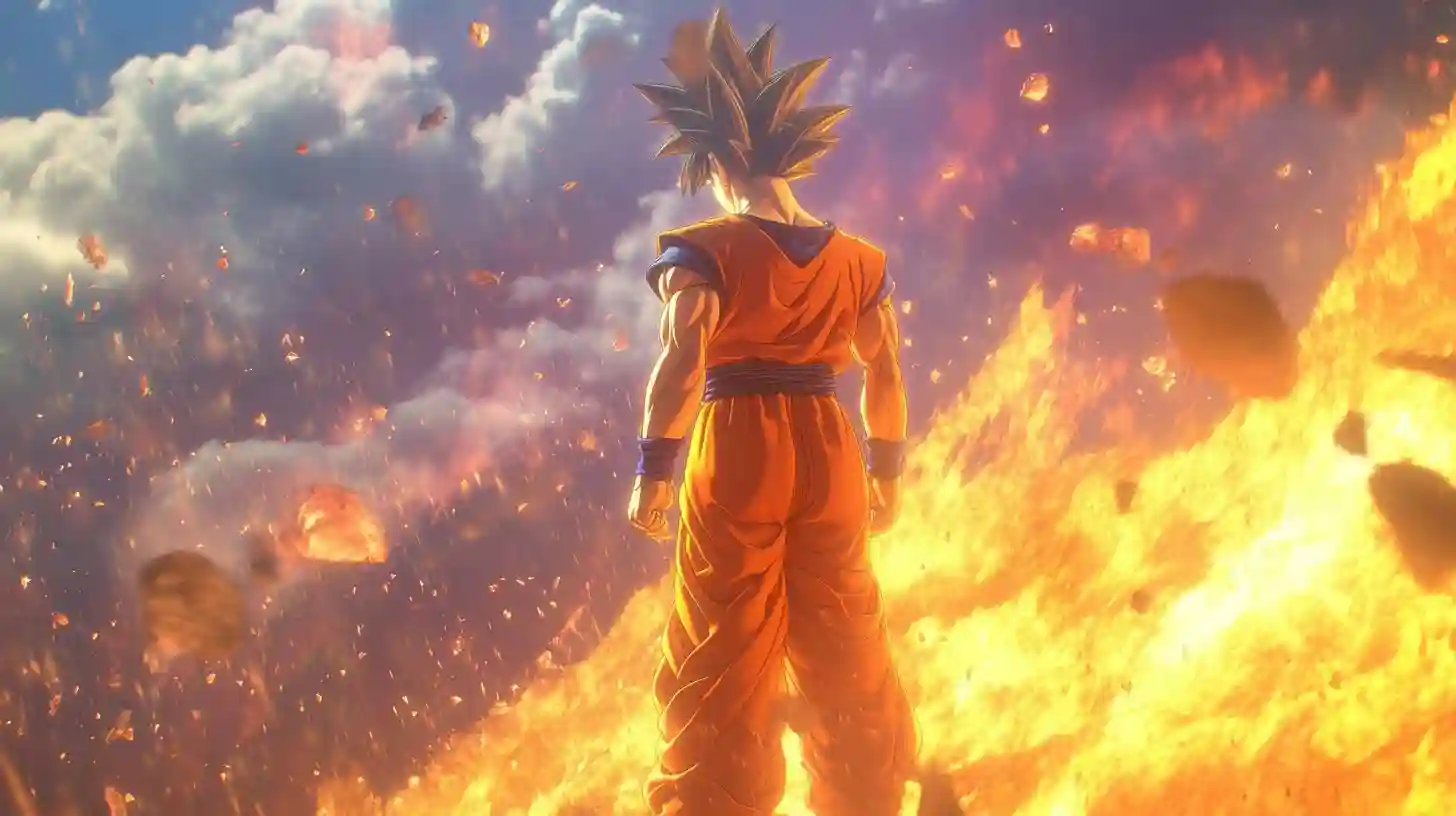
Dragon Ball, created by Akira Toriyama, stands as one of the most iconic pillars of Japanese manga and anime. Its influence transcends generations and cultural boundaries, shaping not only the landscape of anime but also the broader realm of pop culture. The series, which began serialization in the early eighties in "Weekly Shonen Jump", embodies the archetypal traits of shonen manga while introducing innovative storytelling techniques, character development, and a unique blend of action and comedy that captured the hearts of millions.
Set in a whimsical world filled with martial artists, mystical creatures, and powerful artifacts, the narrative of Dragon Ball follows the adventures of Son Goku, a Saiyan warrior who starts as a naive child and grows into a formidable fighter. One of the hallmarks of Dragon Ball is Goku's insatiable thirst for strength and self-improvement. This relentless pursuit resonates deeply, reflecting the Japanese ethos of hard work and perseverance. The cultural significance of this journey mirrors real-world values within Japan, drawing young audiences towards the idea that through dedication and effort, anyone can overcome obstacles and become their best selves.
The series is also notable for its diverse array of characters, each possessing unique traits and backgrounds. Goku's companions, rivals, and adversaries introduce themes of friendship, rivalry, and redemption. Characters such as Vegeta and Piccolo provide complex narratives of growth that offer redemption for past actions. The evolution of Vegeta from a ruthless antagonist to a beloved ally exemplifies how nuanced character arcs can add depth to a story. This complexity draws viewers in, as they become invested not only in the overarching plot but also in the personal journeys of each character.
Moreover, Dragon Ball's influence extends into the realm of visual storytelling. Its distinct art style, characterized by dynamic character designs and imaginative settings, set a standard for future manga creators. Each fight scene is meticulously illustrated, filled with kinetic energy and emotion, engaging the reader and enhancing the narrative. The series' signature tropes, such as power-ups, intense training sequences, and epic showdowns, have been adopted and emulated in countless series that followed, laying a foundation for what would come to define modern shonen anime.
The series did not merely influence other manga and anime; it also played a pivotal role in shaping the global perception of Japanese animation. With its syndication in various countries, Dragon Ball served as a gateway for international audiences into the world of anime. The cultural impact was profound, heralding a new era in which anime began to receive mainstream attention. Shows like Dragon Ball Z and later iterations introduced themes of battles, transformation, and camaraderie that resonated with global viewers, expanding the audience beyond Japan.
In addition to established themes of friendship and rivalry, Dragon Ball deals with the concepts of legacy and continuity. The introduction of the next generation of fighters, such as Goku’s sons, Goten and Gohan, showcases the passing of the torch, emphasizing the idea that the journey of self-improvement is ongoing. This thematic exploration ensures that the series remains relevant and relatable across different age groups. Newer generations are introduced to the saga through remakes and sequels like Dragon Ball Super, which not only rekindles interest in older fans but also captivates younger audiences, ensuring the series' longevity in popular culture.
Furthermore, Dragon Ball’s impact has also been felt in the realm of video games, merchandise, and fan culture. The franchise's video games have achieved considerable success, enabling fans to engage with their favorite characters and storylines in immersive ways. Conventions and fan art reflect a vibrant community that thrives on creative expression and shared enthusiasm for the series. Cosplay, fan fiction, and fan theories add layers of depth to the Dragon Ball experience, reinforcing its status as more than just a series, but a cultural phenomenon that inspires collaboration and interaction among fans worldwide.
To this day, Dragon Ball remains a cultural touchstone, a reference point for discussions about shonen manga and anime. Its narrative structure, vibrant characters, and compelling themes continue to influence creators and entertain millions. As new generations of fans discover Goku and his adventures, the series stands as a testament to the power of storytelling and the ability of fictional worlds to bring people together in an ever-evolving cultural landscape. Through its unique blend of action, humor, and heart, Dragon Ball has etched its place in history, symbolizing the rich legacy of Japanese manga and its enduring impact on the world of anime and beyond.